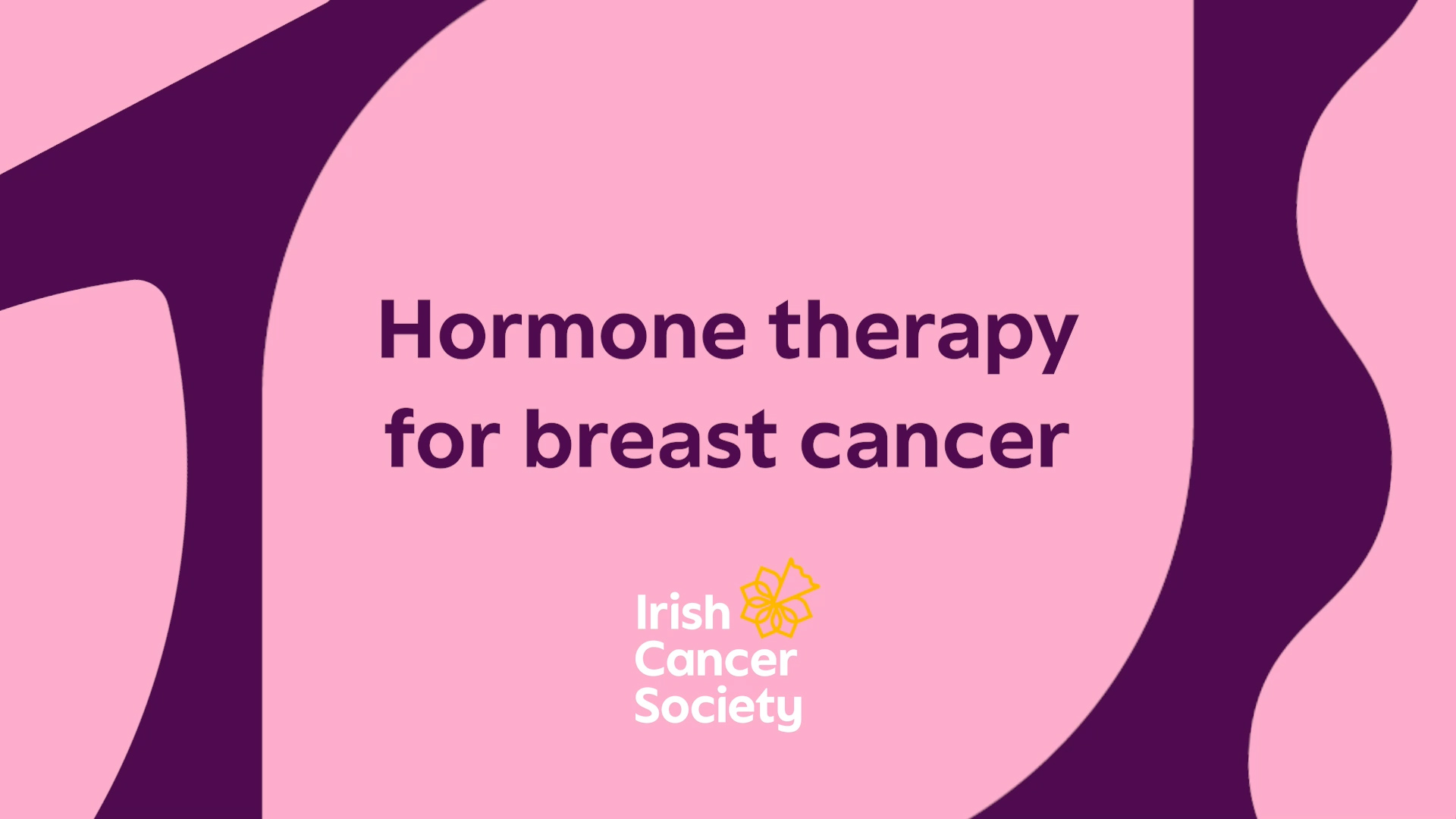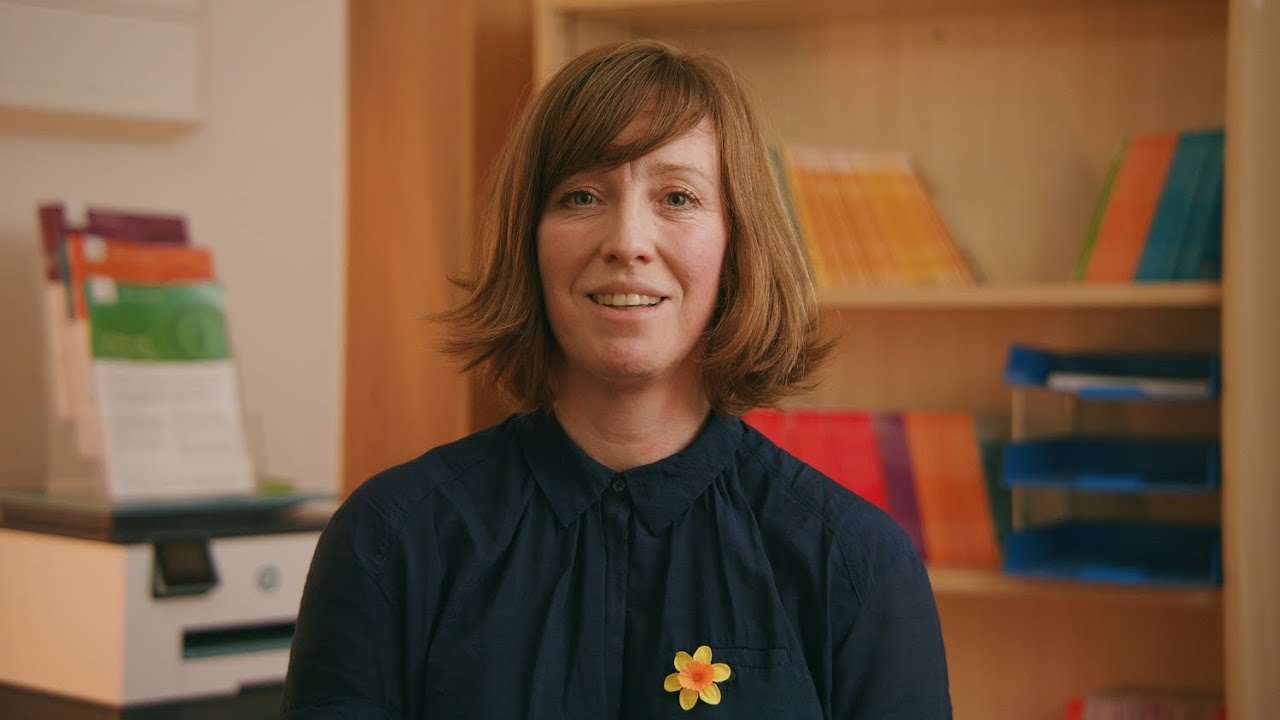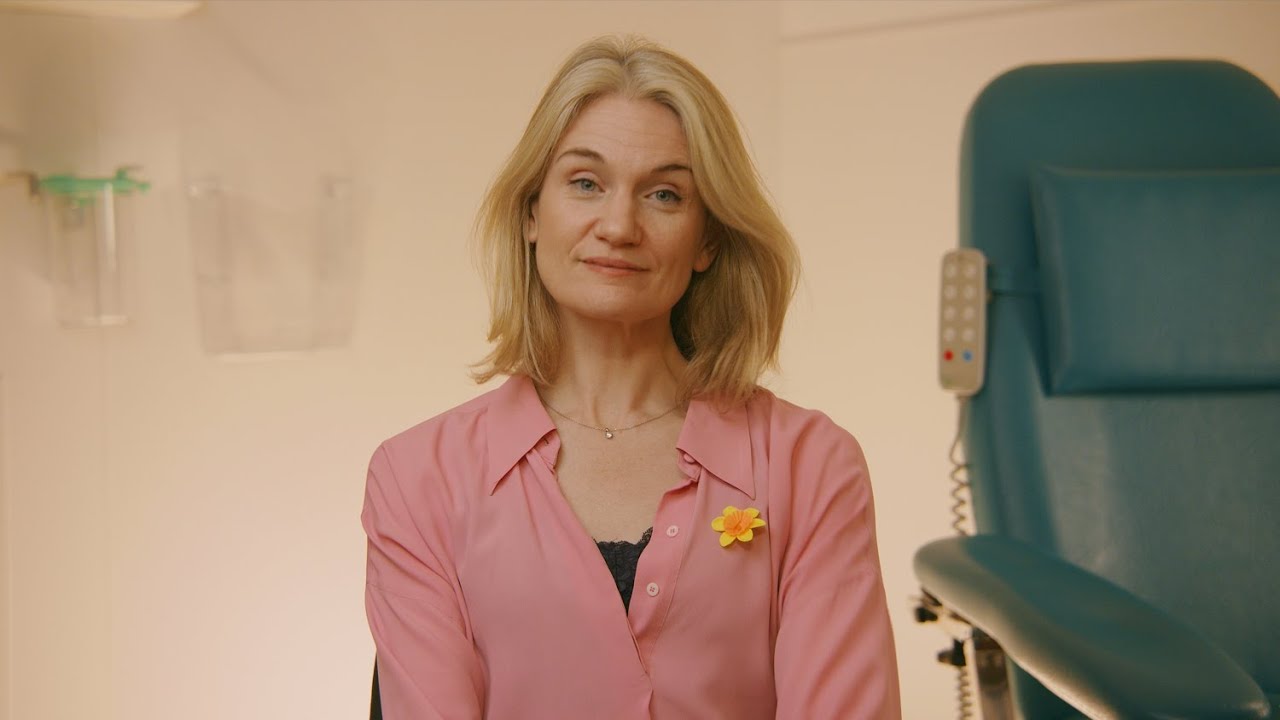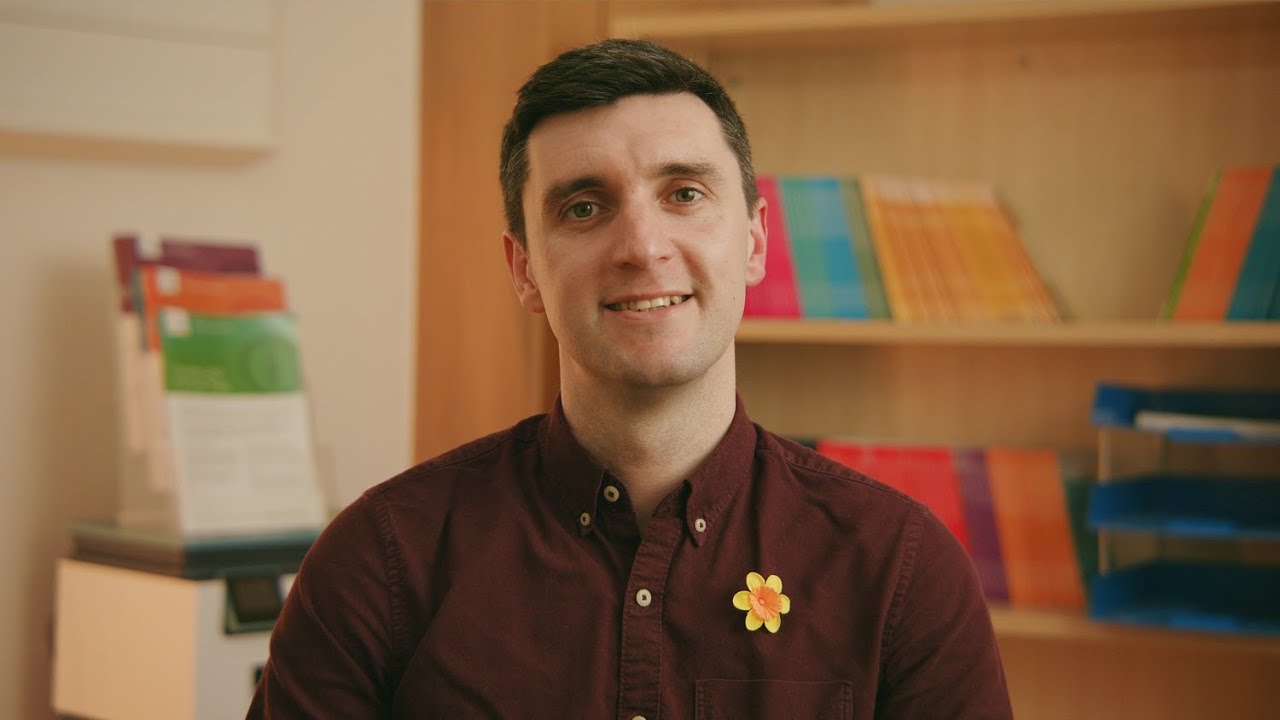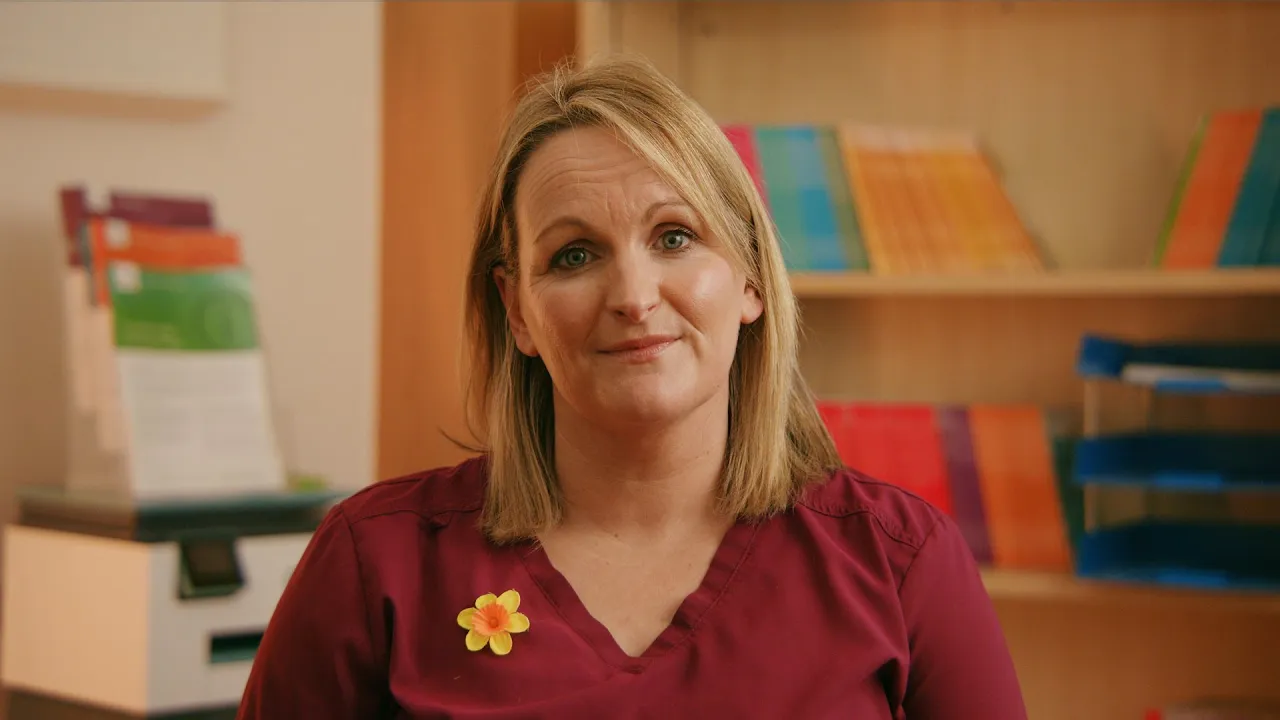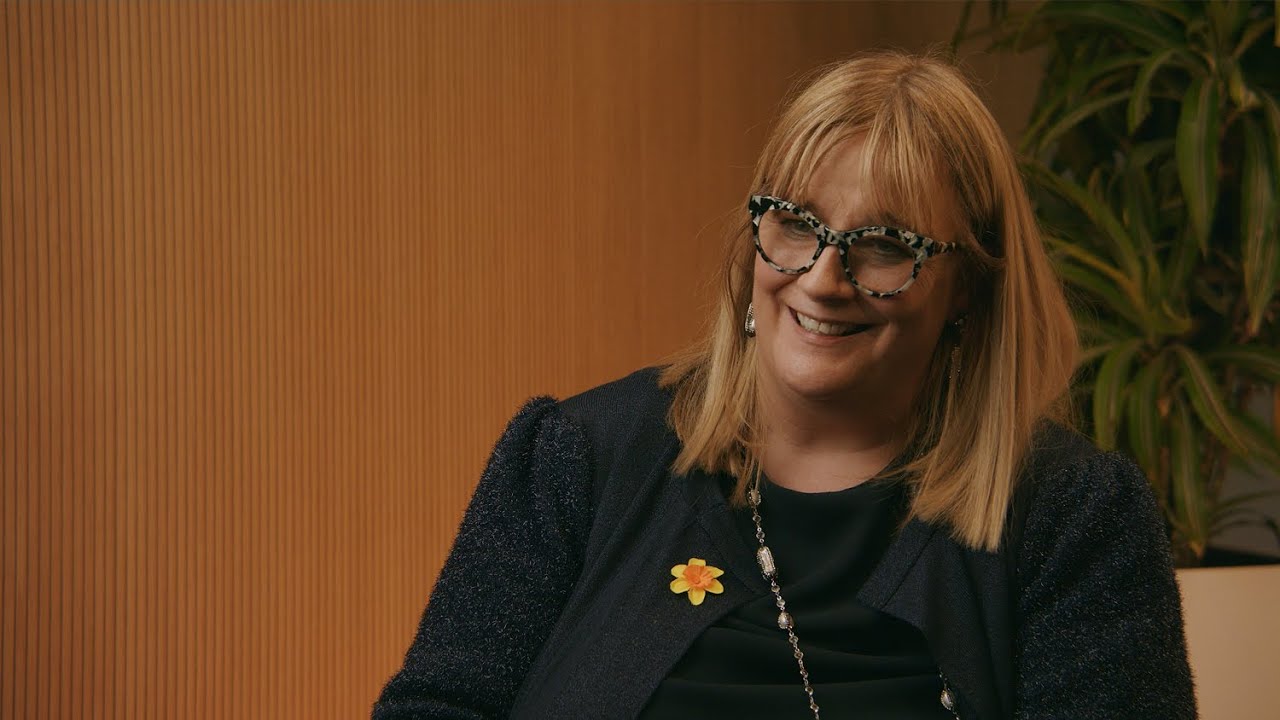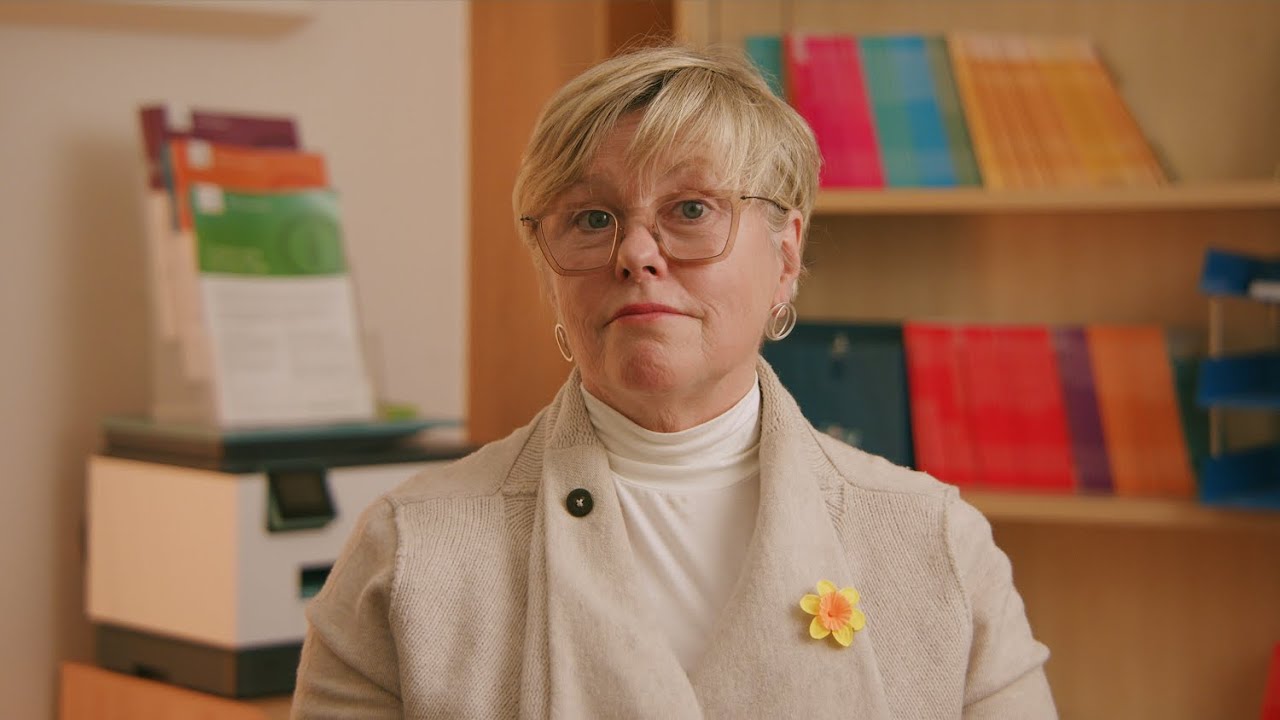Hormone therapy for breast cancer 6: Jennifer's story
In this video Jennifer shares her personal experience of hormone therapy for breast cancer and some advice on coping.
0:08
My name is Jennifer and I'm from Naas in County Kildare. I'm 55 years old. I'm married to Paul and I have 2 boys. I worked for many years in St James's Hospital, as a business manager in the cancer directorate, and now I work for the professional body for dietitians in Ireland.
0:28
How I realised that there was something wrong was, I got the flu and I couldn't shake it, and I actually had to take to the bed, which was very unlike me, and I turned over onto my left side and I felt a lump, and that was literally how it happened and that was 2016.
0:44
So, even though I had worked in healthcare my whole life, and I had worked in cancer for a huge chunk of my life, it was a total surprise to me when I was diagnosed.
0:55
It was very clearly described for me. So, I knew that they were going to start with chemotherapy. I knew exactly the chemotherapy regimen I was going to be on, that they were going to start with a very intensive type of chemo, and then you move on to a longer type of chemotherapy, which went on once a week for 12 weeks, and that was pretty tough, because that's the marathon side of things, and I knew then that I was going to have surgery, and then I knew about radiotherapy, was going to be the next step, but hormone therapy.
1:29
You're going to have to have hormone therapy now, you're going to have to have it for 5 years. You're going to have to take this tablet every day for 5 years, and that came as a bit of a surprise to me. I thought I was sort of putting all of that behind me.
1:44
I was very anxious about it, yeah, because I wanted to be finished with the cancer. I wanted that to be over, and the thoughts that I would have to keep taking this for 5 years and dealing with any potential side-effects for 5 years, that made me very anxious, yeah.
2:02
I tried to learn as much as I could about it myself, and when you do actually step up and you learn about it, you realise that there's great evidence behind this, that you do need to do this to keep yourself healthy, to keep the cancer at bay.
2:17
So, it was a no-brainer. I had to do it, so I just cracked on and I did it. That doesn't mean it was easy, it just meant that I knew it was important, that I had to do it.
2:27
Very early on, I had a very good relationship with my pharmacist, and so I found a brand that suited me, and I experimented with a few brands, because there are several different types, like I was on tamoxifen, but there are loads of different types of tamoxifen, there are loads. It's manufactured by different manufacturers.
2:50
So, I found one that suited me, and my pharmacist was able to advise me in the context of all of the other medications I was on, how to manage tamoxifen, and how to identify potential side-effects so that I could intervene myself to offset them.
3:08
So, I just took it every single day like you would take vitamins, or like any other medication, and it is just important to remember to take it every single day. So, I did.
3:21
But the aches and pains, definitely, exercise is the solution to that, and it doesn't have to be very vigorous exercise, but in the same way that you need to take your medication consistently, you need to do the things to offset the side-effects consistently.
3:39
So, as I said, for me, it was going out, just 10 minutes out, 10 minutes back every day. That also, not only physically did it help to offset the side-effects, but actually putting myself out there, and getting out of the house, and getting a bit of fresh air, it was good for me mentally too.
3:57
It definitely made me feel better, and it made me feel more in control of, I suppose it made me feel more empowered. I was doing something to help me stay well.
4:10
I benefitted from the resources that the Irish Cancer Society have developed in the past. So, resources that they developed around how to manage your chemotherapy, how to manage fatigue, what radiotherapy is, because these are things that you don't immediately understand.
4:27
And, so having those resources, and I used to keep them in a drawer beside my bed, and when something was kind of bothering me, I would just read them. I would just take them out of the drawer and read them.
4:39
But also, if I needed to go somewhere to get evidence-based advice, because the internet has everything under the sun on it. I knew that when I went to the Irish Cancer Society website, I could trust what I was reading there, and that's hugely important, that you can trust, you know that there there's huge rigour gone into developing the resources that you're consuming as a patient.
5:04
Well, there comes a time where you move away in your cancer journey, where you move away from the acute phase of your treatment, and you start to live your life again, and this is part of your life. If you have to take hormone treatment, hormone therapy, this is part of your life.
5:21
So, you just try and accommodate it as best as you possibly can, and make it something positive, rather than something that is forced upon you. Have some agency. You are in control here.
5:37
You take this treatment; it helps to prevent the cancer coming back. You develop your own coping mechanisms to help you deal with any side-effects, and not everybody has side-effects.
5:47
That's the other thing about this, only some people have them. And so, it is something you can feel empowered to do for yourself, to help keep yourself healthy.
Hormone therapy for breast cancer playlist
